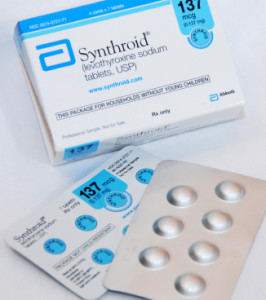Synthetic Thyroid Drugs: A Tarnished History
Synthetic Thyroid Drugs: A Tarnished History
Effectiveness is the most important criterion in choosing a thyroid replacement product. But equally important is the safety of the product. Here again, natural thyroid has proven superior. Natural thyroid extracts have been in use for over a century and were approved by the FDA in 1939, a year after the passage of the Food, Drug, and Cosmetic Act. Synthroid, Levothroid, Levoxyl, and other synthetic T4 products entered the market years later without FDA approval, under the mistaken assumption that these products were not new drugs and that their manufacturers were not required to prove their safety or effectiveness.
However, in 1997, the FDA ruled that oral levothyroxine sodium products were indeed “new drugs” and that manufacturers who wanted to continue marketing these products must submit a new drug application for approval. This decision was based on a long history of potency and stability problems with these drugs. In fact, between the years 1991 and 1997, there were ten recalls of levothyroxine sodium tablets, involving more than 100 million tablets. These recalls occurred primarily because these products had a lower potency than claimed or had lost their potency before their expiration dates. In some cases, patients required hospitalization due to problems with their thyroid medication.
Despite this tarnished history, many physicians continue to prescribe Synthroid and other brands of synthetic thyroid hormone and remain opposed to Armour Thyroid. If synthetic thyroid hormone costs twice as much and is less effective, why do they use it? In my opinion, it is largely due to the massive marketing campaigns of the pharmaceutical companies that hold patents on these drugs. Because naturally occurring substances, including thyroid hormone, cannot be patented, these products have a lower profit margin, and the companies that make them do not have millions of dollars at their disposal for marketing.
It is a battle of David versus Goliath. In this case, it is Goliath, the pharmaceutical industry, known as Big Pharma, that wins. The loser is the patient who is prescribed the less effective, more expensive product.

